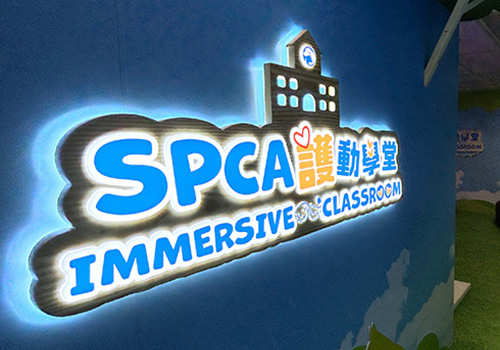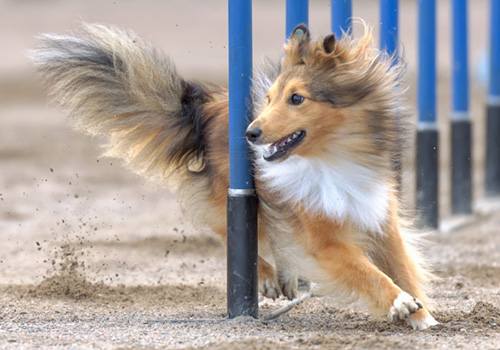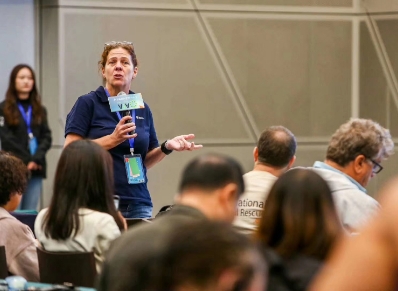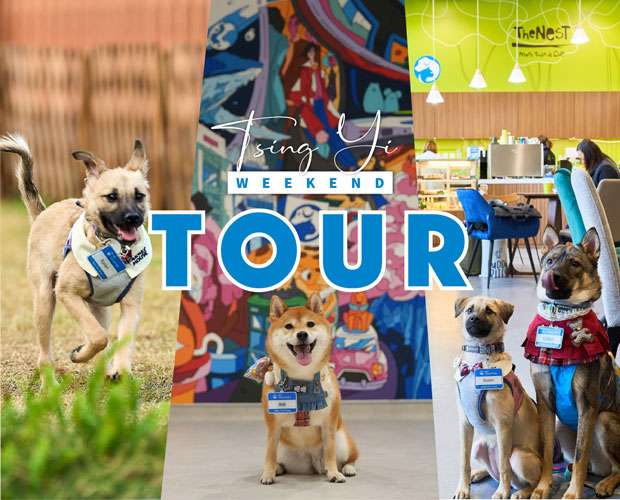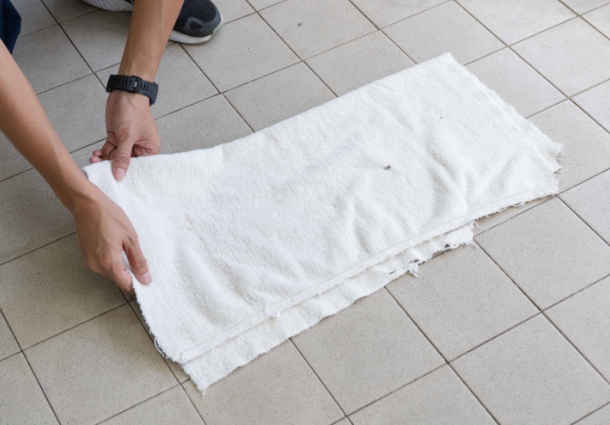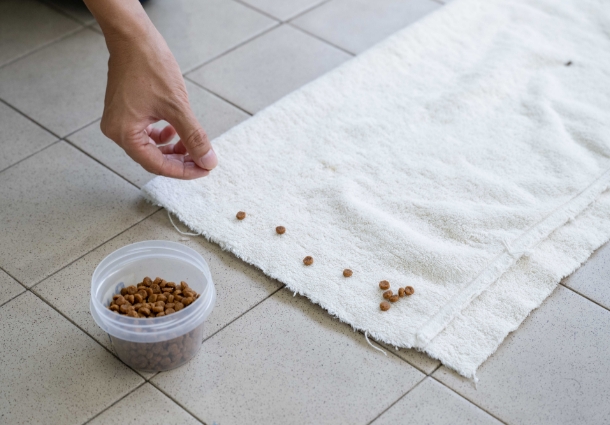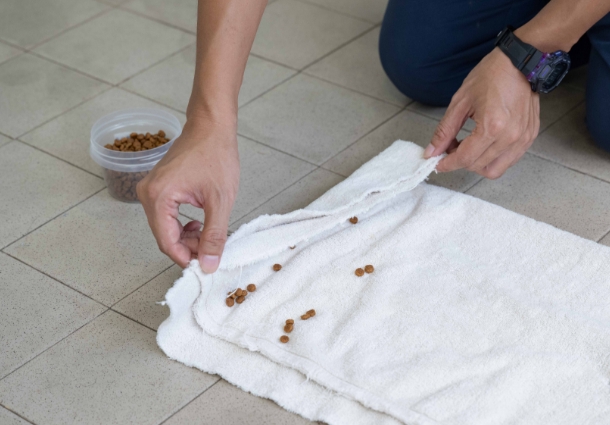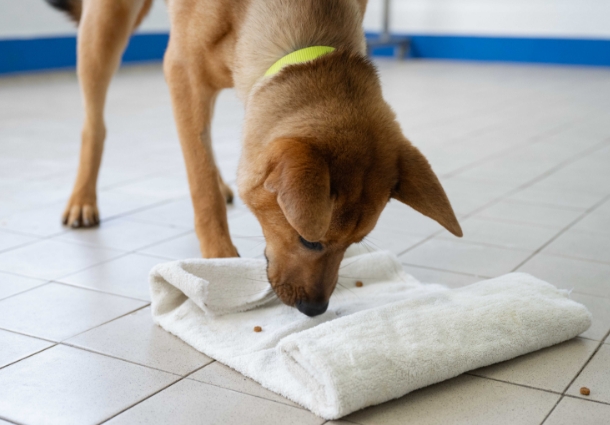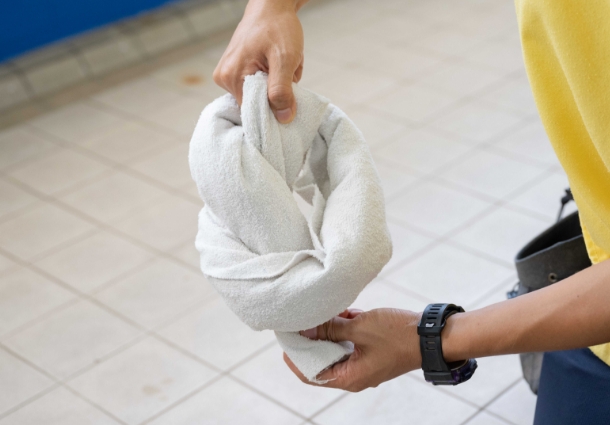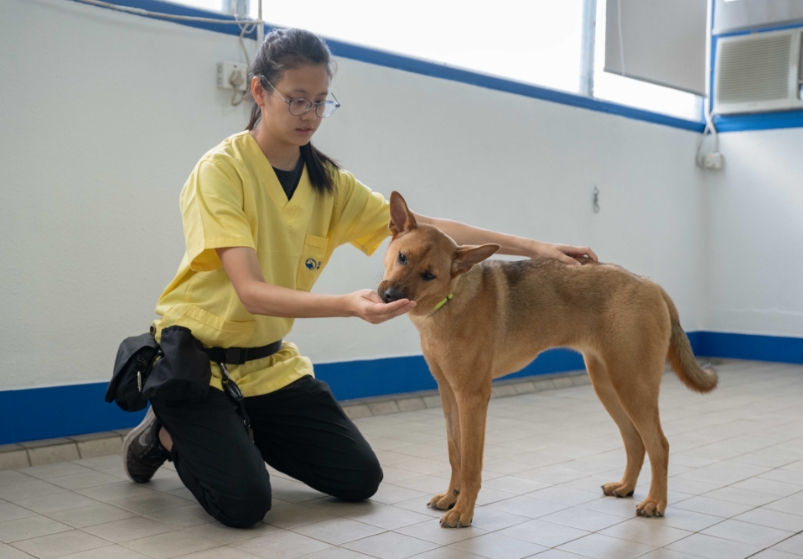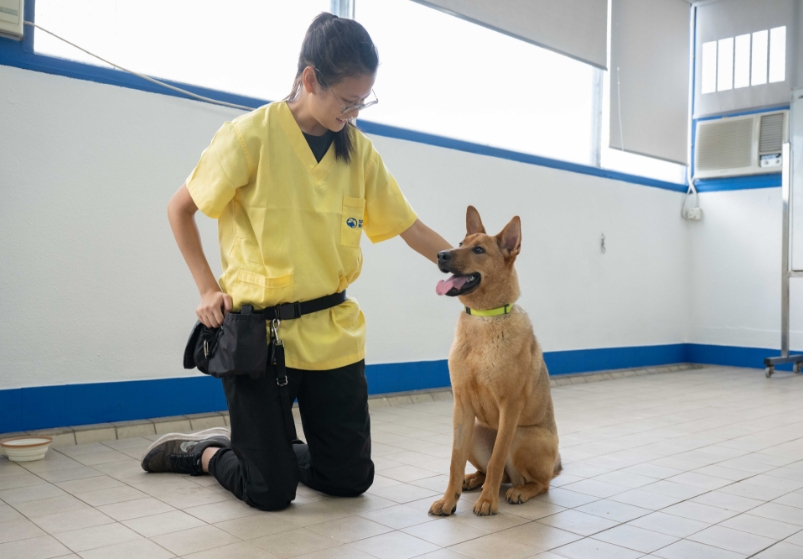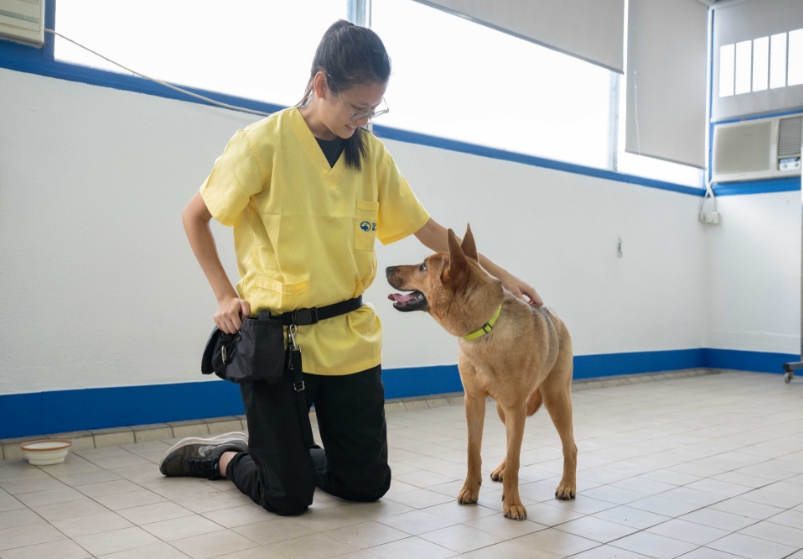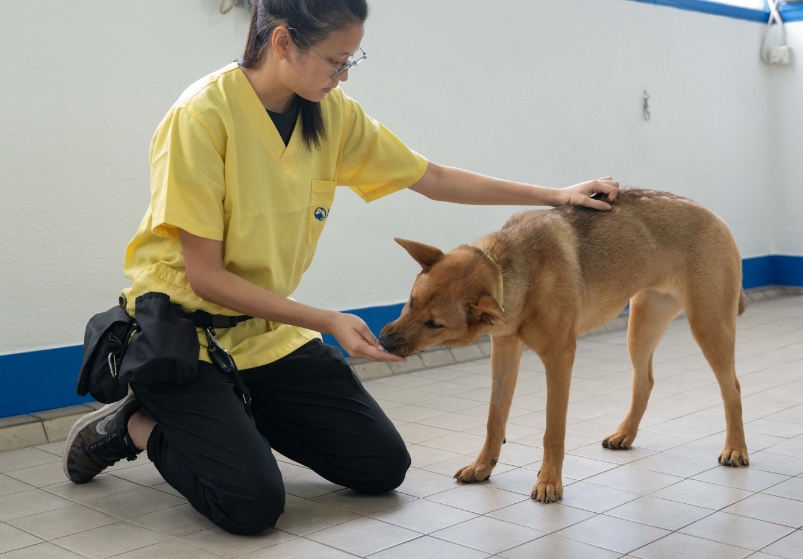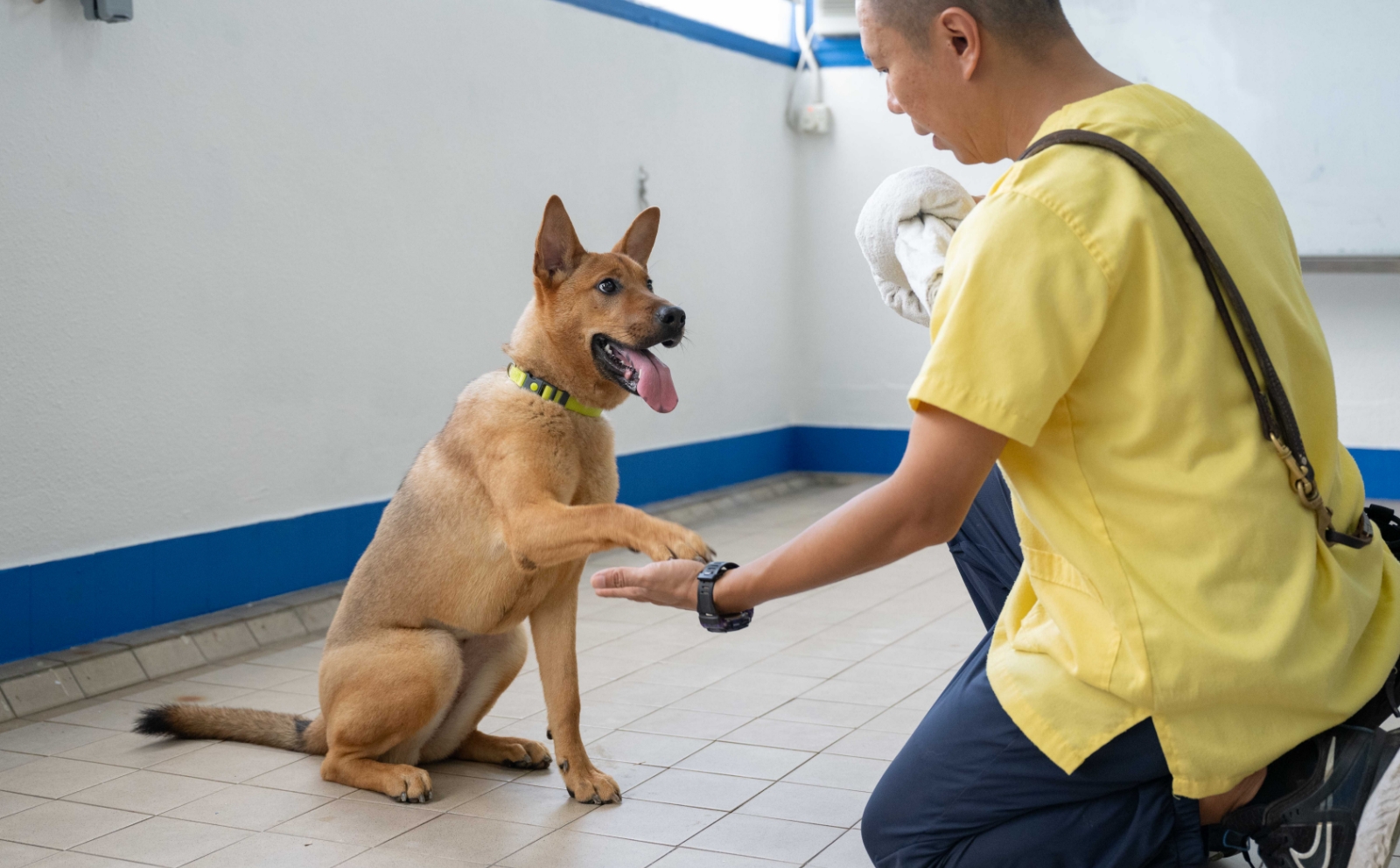
The importance of training and enrichment for older dogs
It’s a common misconception that older dogs “can’t be trained” or there’s “no point” in training older dogs. Seasick Steve even wrote a song titled You Can’t Teach an Old Dog New Tricks, but our SPCA trainers are here to debunk that myth.
Not only is it not true, but training your dog is a great way to strengthen your bond and engage with your dog mentally, which plays a huge role in your pet’s well-being and can even greatly reduce or slow cognitive decline.
Here are a few simple exercises you can do at home.
How to get started?
1. Nose and scent games
Older dogs are often incapable of walking long distances. So, a great way to keep them active and mentally engaged is through the use of mental stimulation or enrichment activities, such as puzzle toys i.e. Busy Buddy, Kong.
Here’s a simple DIY scent game you can do at home with your dog, that only requires a towel and some kibble or treats.
Here are some things to be aware of when training your senior dog:
Be patient
Keep it simple and easy
Do consider your dog’s physical or mental abilities when choosing the right training
Take it slow, do not overdo it
Make it fun, no pressure
What about when facing behavioural issues, can old dogs still be trained?
Yes!
It’s never too late to train your dog. It might take longer compared to training a puppy. But it is still possible to train your older dog. Here’s a few simple tips to get your started :
2. Change the routine step by step
Training is not just about requiring your dogs to follow instructions. We also need to take into consideration their well-being, which is why it is important to adjust your pets’ daily routine in stages:
Decrease the walking time & increase the resting time
Small meals at shorter intervals
Fast changes to their routine may cause stress and behaviour problems.
3. Sensory training
We need to understand how dogs perceive the world via their senses : nose->ears->eyes, a reverse order compared to humans’. When one sense deteriorates, other senses can be used to assist during the training process. For example, if the ability of hearing becomes poor, owners can add gestures (visual stimulus) when they call their dogs to better help them understand the instruction.
Earlier, we spent a day training a blind dog with the stimulation of smell and sight. As we know dogs have remarkable ability to discern and remember scents. If we are in a downwind position, the dog can recognise you from far away.
Senior dogs may become more sensitive as they age, and not like being held or touched.
One great exercise for seniors is desensitisation to help reduce the stress caused by touch.
Try to achieve small goals before going to the next step. Remember, training is supposed to be a bonding moment, if you get frustrated – take a break. If you are struggling to make progress in your training, do not hesitate to reach out to our behaviourist or trainers for help when needed.
Contact us at 2232 5567 or email bt@spca.org.hk
Click here to learn more about our trainings courses.

